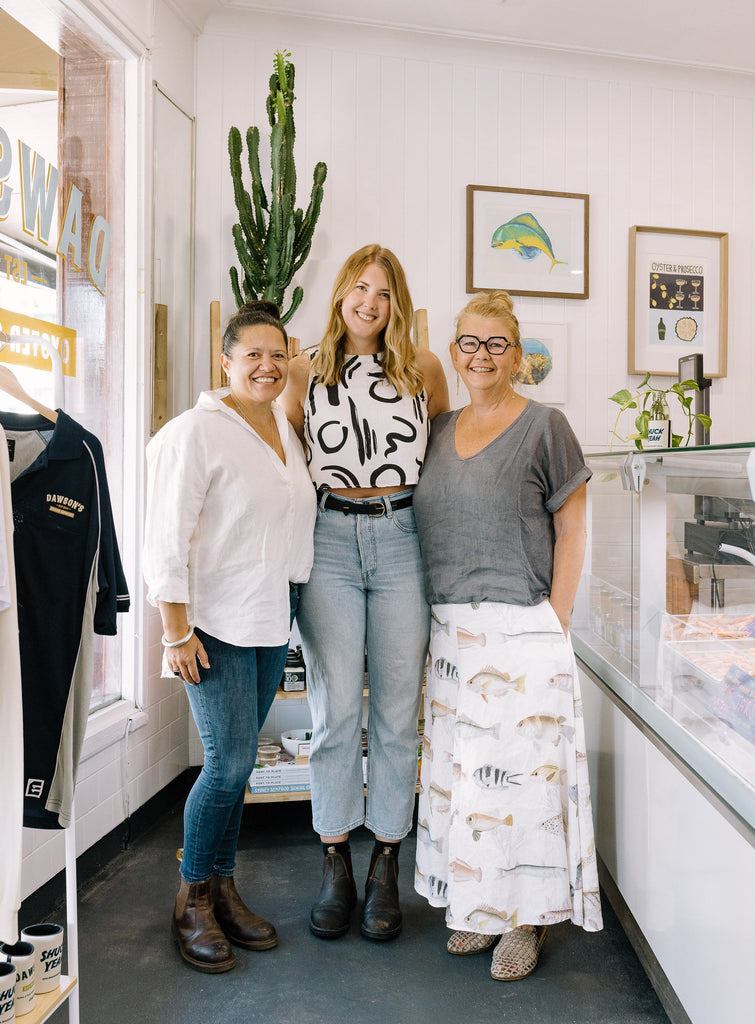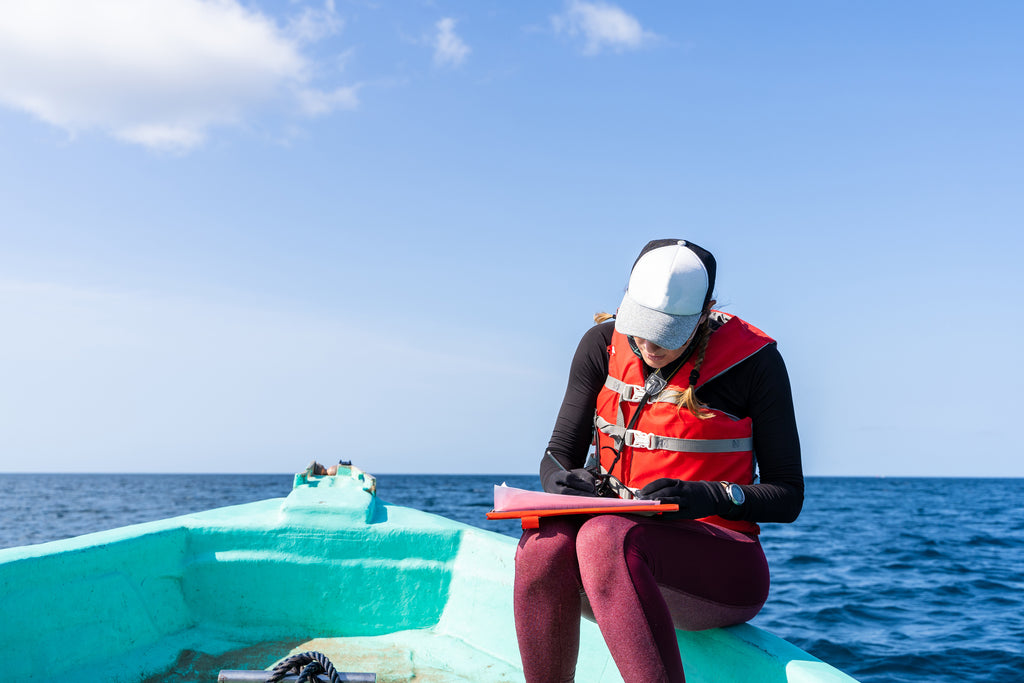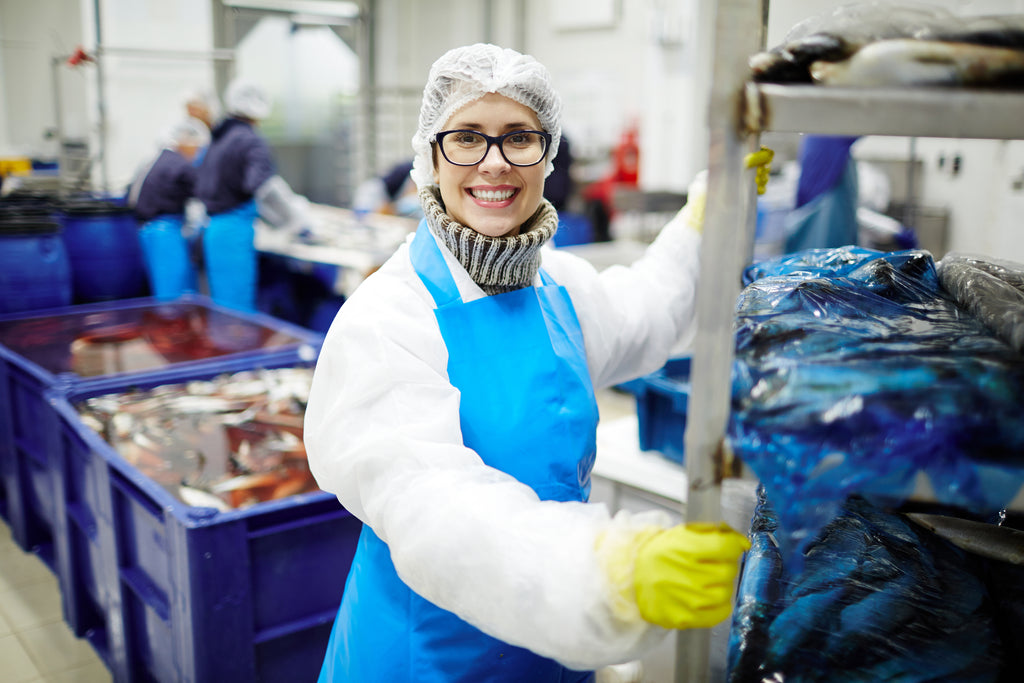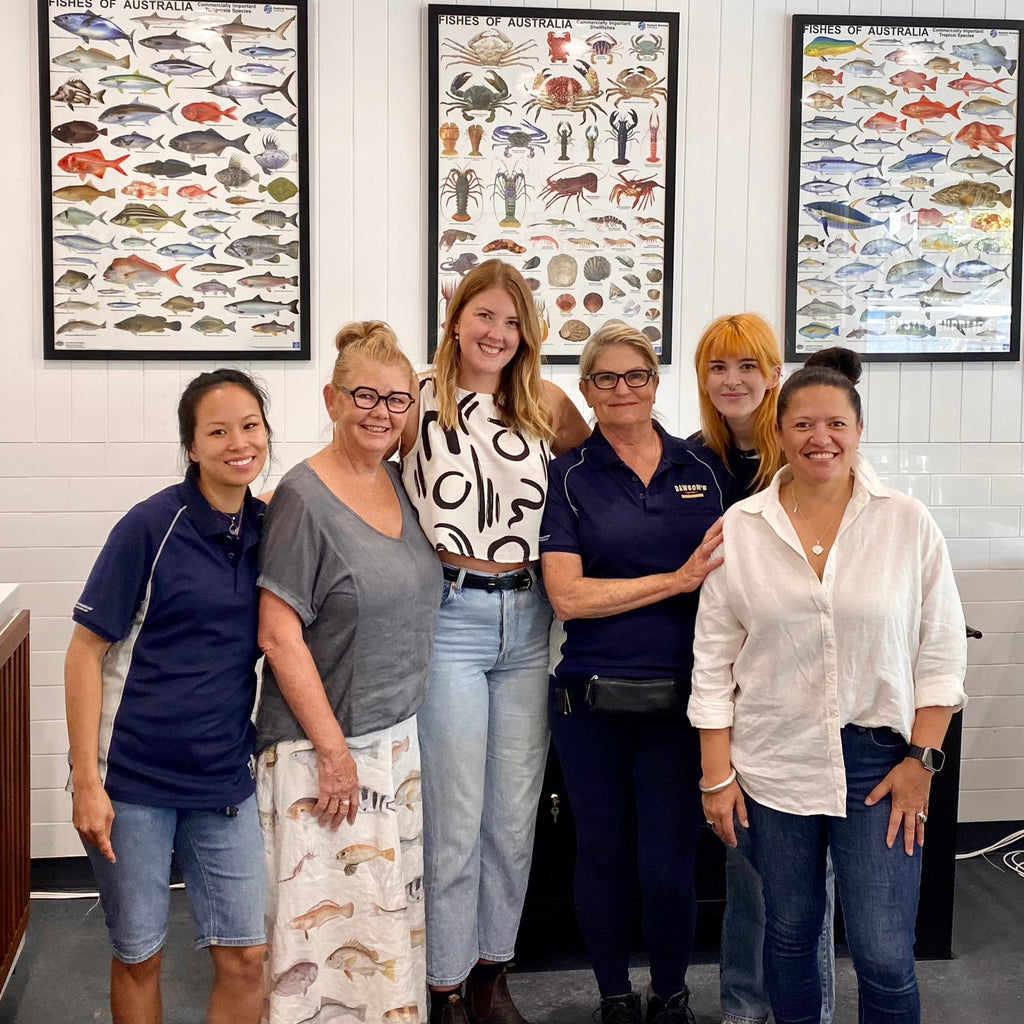Women in Seafood
Dawson’s Oysters is a business that is owned and operated by women. Owners, Hannah, Thelma and Lou employ a mixed team that also includes three other women that have a central role to play in the running of the business, Karren, Jade and Morgan. There is a perception that the seafood industry is a male dominated industry and whilst this is true, 24% of the Australian workforce is actually female. In 2015 the United Nations produced a report that found that 50% of the workforce along the global seafood supply chain were women. In Australia the number of women working in the industry has declined by 20% since 2006. Dawson’s is a member of WISA (Women in Seafood Australasia) who’s aim is to raise the profile of women in the industry and contribute to the diversification of the workforce, creating a more inclusive culture to the betterment of all who work in the industry.

History
In Australia, the Eora Fisherwomen around Sydney Harbour were greatly admired by the early colonists for their skill in catching fish. The indigenous women made fishing line by twisting strands of plant fibre together, their hooks were crafted from shell, and they fished from their small bark canoes or collected shellfish along the coastline. They were the main food providers for their families. The early colonial women also took up the fishing habit with Elizabeth Macquarie, wife of Governor Macquarie famously out fishing her husband. Today 30% of recreational fishing is done by women and in indigenous communities this number is closer to 90%.
Commercial fishing heralded a division of labour along gender lines with the hard physical labour of long periods at sea being done by men, but the processing, certainly in the 19th and early 20th centuries, was often done by women. Women mended the nets, bought and sold the catches, and processed the fish on shore.
With technological advances, the workforce began to change shape, but Australia was in step with the rest of the world until around 2006 when the numbers of women in the seafood industry began a steep decline.

Women in Seafood Australasia (WISA)
WISA is the only national organisation in Australia which represents the women of the seafood industry. It provides a unique network and role in untapping a valuable resource for the industry which has had a distinct lack of female representation. There has been very little information or data gathered regarding the contribution that women make to the industry until now.
In 2022, WISA produced a report, Women of the Australian Seafood Industry, Women’s contribution, their roles and what women need to succeed, that began the investigation into women in the seafood industry and what was contributing to the rapid decline in participation.
The report found that there were five key changes that were required to increase and improve female participation in the industry.
- Freedom from sexual harassment
- To be respected, valued and included
- Equal opportunity to progress
- Access to networks, champions and mentors
- Support for responsibilities outside of work
“Women feel like they don't have the same opportunity of getting a promotion as men. They don't feel like they're listened to, taken seriously, or valued,” said Dr Kirsten Abernethy, WISA Executive Officer and one of the authors of the report.
“We want to start a conversation with all of the industry and with leaders, men and women, about how we can shift those numbers so that women do feel more included,” Kirsten said. “While there are incredible organisations that embrace diversity, women involved in our research identified that our industry has systemic and cultural barriers common to other male dominated industries. Only 15% of senior leaders in seafood are women and one third of women say the industry culture excludes them. We also now know that over 20% of women experience sexual harassment which impacts women’s careers and safety. While still ensuring WISA deliver development opportunities to seafood women, WISA are also seeking to make seafood workplaces more attractive for women to thrive in. This requires a whole of industry approach.”

The Women of Dawson’s Oysters
Inclusive cultures can give organisations a competitive advantage, better leadership, lower turnover, and better work life balance and wellbeing for all. Here at Dawson’s, we’re proud to be bucking the trend with our strong female representation.
“I think that being female led has allowed this business to grow and move forward in a very organic and innovative way,” said Hannah Woods, Director of Dawson’s Oysters. “I believe that gender diversity in a workplace fosters creativity and I’ve been able to tap into this with projects like the shop design and fit out, the growth of our social media and online footprint, introduction of new product ranges etc. Being a female leader for me is about collaboration, and I believe my team does this really well.
“On the flip side of this, it has taken a while for my male counterparts in the industry to embrace a local competitor that is female led. The seafood industry is still very male dominated here, and I happen to be quite young for the position I hold. Customers always assume that my male colleagues run the business. It’s something I try to not take personally.
“I’ve attended WISA events and have had the opportunity to speak to other women in the industry about some of their frustrations. A common problem is not being taken seriously. We work twice as hard as our male counterparts to gain the same respect from both those in the industry and the general public.
“What’s exciting is that we are at a point in time where the industry is shifting, and I think more women should entertain the idea of a career in seafood. I believe that women’s involvement at all levels can positively impact the industry and the people who work within it. For example, I’m big on flexible working arrangements. Scheduling is done very mindfully of work life balance. I chose to close the business on most public holidays and on Sundays throughout the cooler months, not to save on wages, but to allow staff and myself to spend time with family and friends if they chose and to just generally take downtime that isn’t annual leave.
“I’m proud of all my staff, men and women alike and I’m excited that organisations like WISA exist to foster industry change and connection. I love working in the seafood industry.”


